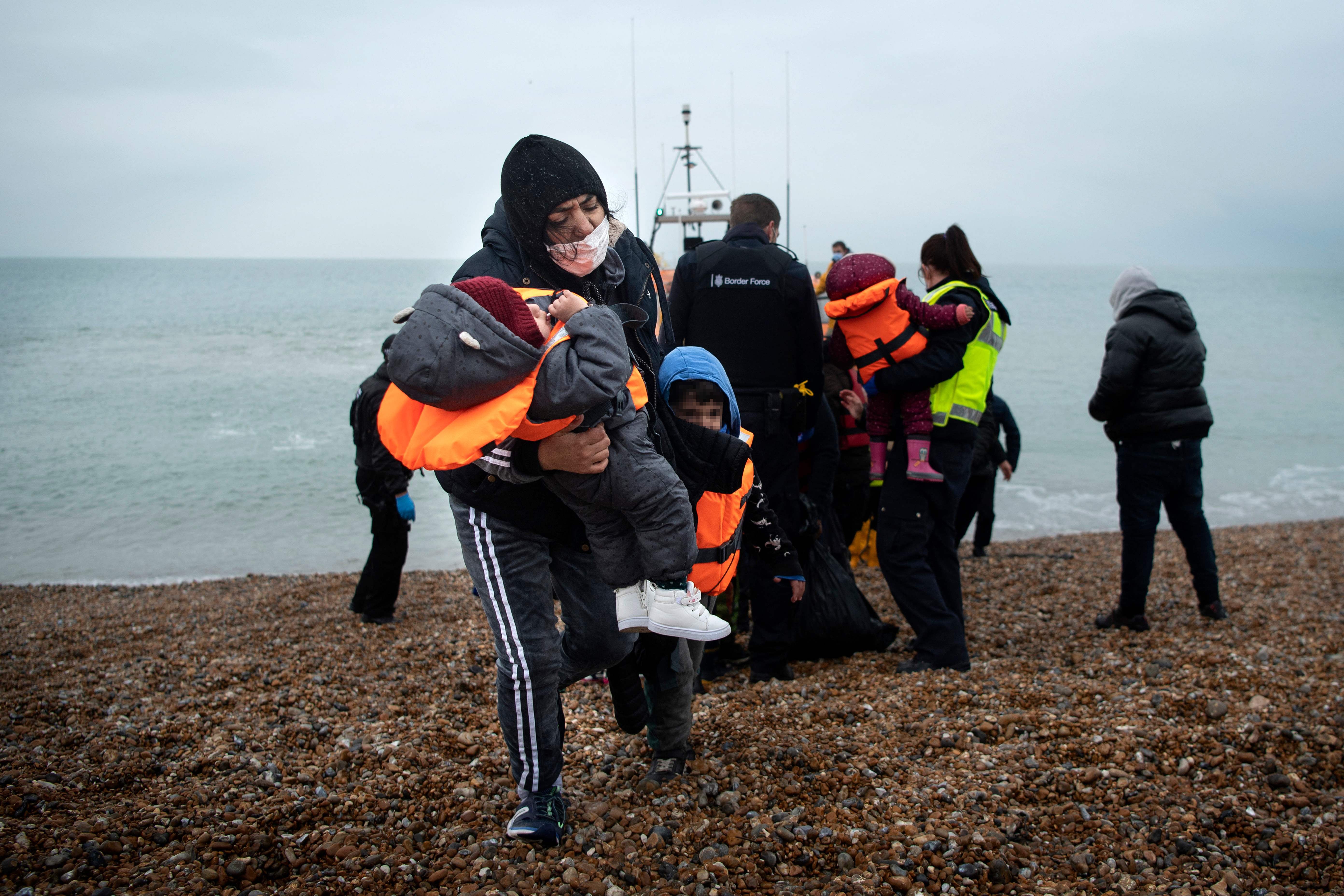If asylum claims were processed at British embassies, it would remove the need to travel here to apply
The UK would be better able to control who arrived here, and anyone arriving without a visa or a pre-approved asylum claim would face non-negotiable deportation


More than 30 people died trying to reach the UK by boat last month, losing their lives while fleeing for their lives. Rightly, the subsequent discussion has focused on destroying the abhorrent trade of people smugglers in order to stop this from happening again.
However, I don’t think the proposals on the table – more police in France, sending boats back, or an Australian-style “offshoring” policy for asylum claims – would achieve this. We’ve got it the wrong way round.
The vast majority of those arriving here by boat have a legitimate asylum claim. Three-quarters of arrivals are of nationalities that see a majority of asylum claims accepted at the initial stage, and of those that fail, all of these nationalities see a majority of appeals accepted. So for a large part, the fact of whether or not these people have a right to asylum here is not the question.
The question is why they must risk their lives in order to be able to submit the paperwork. If asylum claims were processed at British embassies, it would remove the need to travel here to apply. The role of traffickers would be supplanted by airlines, because successful applicants could arrive on a plane, with their paperwork in order, and unsuccessful applicants would be far less likely to risk the journey, knowing already that they had no hope of asylum at the other end of it.
This could reshape our asylum system as a global resettlement programme – akin to the country-specific programmes set up for Afghanistan and Syria – and it could have a target number attached, enabling us to retain control of the number of people to whom we offered asylum each year. This strikes me as fairer, more orderly, and more humane than the current set-up.
The Nationality and Borders Bill, which the House of Commons will debate next week, would pass with far greater ease if the safe and legal routes that it promises were established up front, and if MPs were offered some reassurance that refugees would be processed without having to enter our country illegally.
Instead, the bill proposes to deport asylum seekers to a third country while their claims are assessed. Under this system, people would still have to reach the UK before being removed from it, at great expense to the taxpayer. It is not clear to me how this would constitute a deterrent to travel, other than to the tiny minority likely to fail in their claim and then to seek to remain in the UK illegally. These people would be much better deterred by a system that allowed them to arrive with an already approved claim, and that would deport immediately those attempting to arrive without one.
To keep up to speed with all the latest opinions and comment sign up to our free weekly Voices Dispatches newsletter by clicking here
This feels to me like a genuine win-win. The customer base of the people smugglers would vanish, ending deaths in the Channel and ensuring that people seeking safety here could travel in a humane fashion. The UK would be better able to control who arrived here, and anyone arriving without a visa or a pre-approved asylum claim would face non-negotiable deportation.
We’re not going to end the “push factors” forcing people from their homes overnight. But the cutting of our foreign aid budget has diminished our ability to help support people in refugee camps closer to conflict zones, or those resettled closer to home. The majority of refugees remain in a country bordering the one they have fled. The developing world is where 86 per cent of refugees settle, meaning that it bears, overwhelmingly, the global burden of refugees.
Desperate people will continue to seek safety in the UK for as long as there is conflict and persecution elsewhere. But nobody puts their child in an overcrowded, flimsy dinghy on a cold November morning if they think a better alternative is available. So, when we talk about deterrence, we have to talk about alternatives. A global humanitarian resettlement scheme seems the only viable alternative to the tragedy of deaths in the Channel and the chaos of our current approach.
Pauline Latham MP is a member of the International Development Select Committee

Join our commenting forum
Join thought-provoking conversations, follow other Independent readers and see their replies